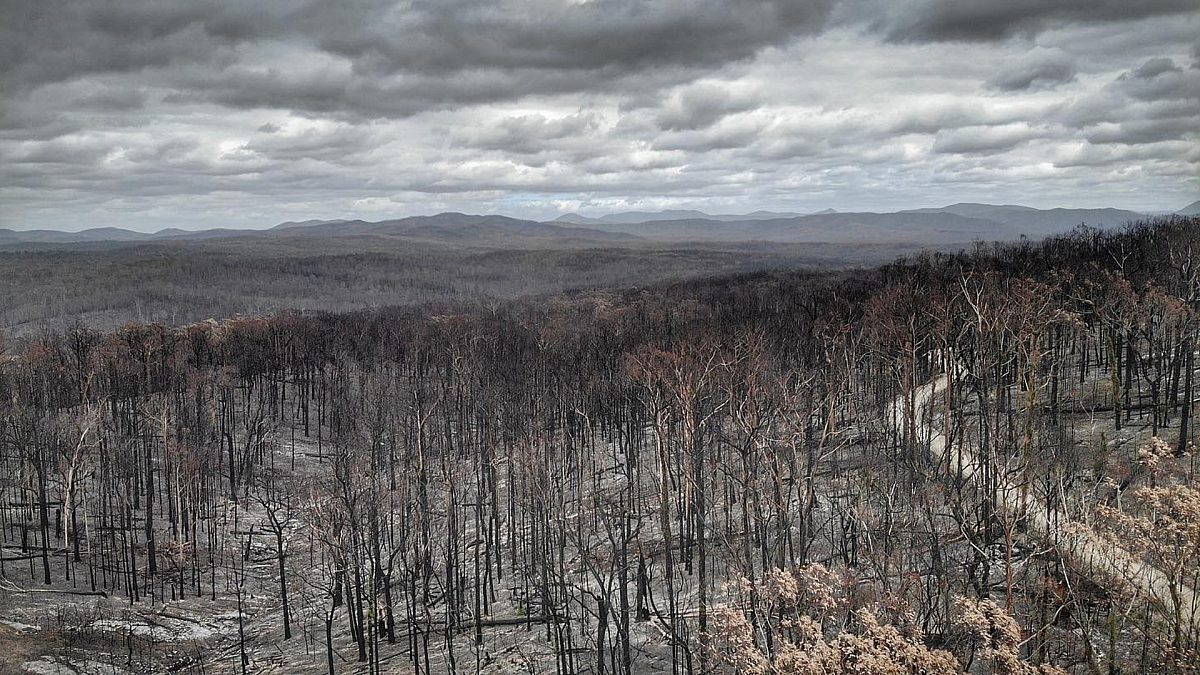
Fight for our forests
After the bushfires, we must protect our remaining native forests.
Mallacoota resident Phil Piper weathered the storm; a fire storm. On New Year's Day he had to fight to save his property from the bushfires that ravaged so much of our communities and forests. He's has also fought to save native forests before, and believes we need to protect them now more than ever.
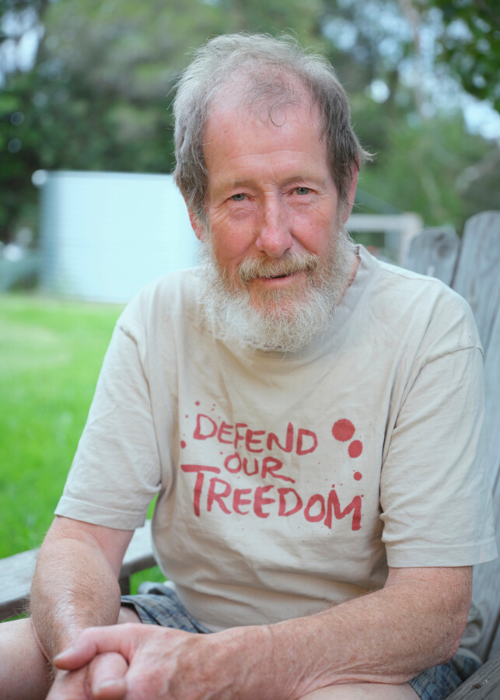
“My partner Kate and I had the masks, goggles... we had all the stuff. We were ready. But you’re never ready for it when it comes,” recalls Phil Piper. “Within about 10 minutes, it was completely black. And then you could hear the roar. It sounded like a jet gone off.”
On New Year’s Eve he watched the sky turn red and darkness descend over broad daylight, as towering flames threatened his house in the coastal town of Mallacoota, Victoria. Phil had a fight on his hands.
“We didn’t know what was happening because you couldn’t see anything, but there was a reddish tinge all the way around on the horizon.” The summer bushfires of 2019-2020 will be forever etched in the Australian psyche. People will remember days of smoke-choked cities, ash raining down from fires that tore through 20% of Australia’s forests. Thousands of homes were destroyed and 33 people lost their lives.
But Phil was lucky. “I just started wetting everything down,” he says. “Then the embers started coming down. I stamped on them… my partner had a garden hose. I tried to just focus on what I was doing and not panic.
“In the end - we were lucky. Because the wind wasn’t actually blowing this way, it was blowing past us. So, we were just lucky.”
While Phil’s property escaped the flames, the fire destroyed about 100 properties in the town.
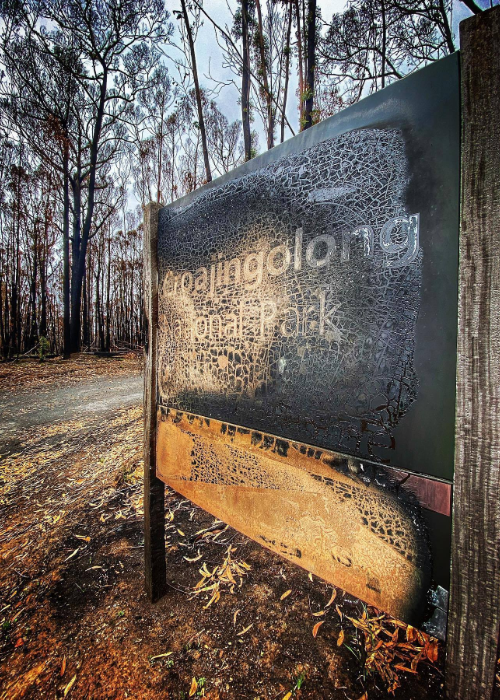
“I’ve lived in Mallacoota for about 18 months, after living in Mirboo North for 35 years. There’s just something about Mallacoota; I don’t know whether it’s the wild bush, beaches, or Croajingolong National Park all around it. I’ve always loved the bush and just getting out in the environment,” says Phil.
A volunteer with the Wilderness Society’s Movement For Life grassroots organisation, Phil has been a passionate advocate for nature his whole life. He’s fought for the protection of our forests before, something he sees as more important than ever following the fires.
Donate today to support Movement For Life groups like Phil's.
“When I was living in Mirboo North, a group of people from the state government logging agency, VicForests, came to talk to us about the logging coupes around our town that they were going to cut down. And we thought, ‘Well that’s a bit rude’,” Phil says. “Our forests were iconic. We formed committees and got everyone involved.
“When you’ve got something there all the time, you can take it for granted. But when the threat came, we discovered there was so much wildlife and flora - and this is what we were fighting to protect.
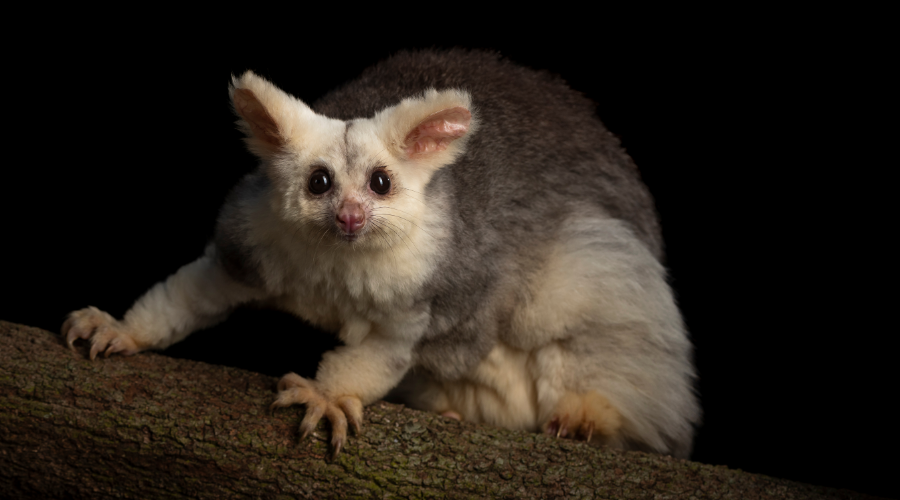
“We focused [our campaign] on the greater gliders. They're just these beautiful creatures, you can go out at night with spotlights and pick them up by their eyes and you can just see that they're quite large, and they have that big tail underneath.
“In the end those coupes were taken off their logging list. That was a really big win for the town.”
Unfortunately, the logging of native forests is a problem that refuses to go away, and following the bushfires it really should have. With 20% of our forests lost to the fires across the country, and all the critical habitat that for endangered animals that represents, moratoriums on logging unburnt tracts of forest are urgently needed.

What’s more, the act of logging creates a tinderbox for bushfires, drying the land further, something Phil witnessed firsthand in the bush surrounding Mallacoota. "As far as I’m concerned, the logging practices are totally unsustainable, as you could see with what burnt and what didn’t burn," he says. “The severest burns were areas that had been logged. It was clear because all the trees were the same size. Bushfires are worse due to a dryer season, and logged areas dry things up.”
Once again, Phil is prepared to fight to save our native forests, having seen the damage the logging industry causes firsthand.
“Anything that’s going to help preserve what we’ve got left is a good thing. I am hoping that because of these fires, more people will become aware. I’m hoping this will kick a few people into gear and say ‘hang on, we have a real problem here’.”
One of the ways Phil hopes to affect change in his community is through his Movement For Life group. “The Movement For Life community organising training I did with the Wilderness Society taught me how to work with the community. It helped me understand how to get the community on track with you. You start out small, a few people around you, and just expand from there. If you get a lot of people that are really interested, you’ve got more chance of getting areas protected.”
It’s this perseverance and passion for the environment and community from people like Phil that saw the Andrews government in Victoria declare an end to native forest logging by 2030. Make your voice heard as a community and you will win the fight to protect our forests. “Wouldn’t it be nice if we could all band together to have a strong voice, working together for the same end?” says Phil.
That same end is an end to native logging in this country - the destruction of critical habitat for some of our most treasured and threatened species like the greater gliders Phil helped protect in Mirboo North, the koalas of New South Wales and swift parrots in Tasmania. Victoria needs to bring forward its ban on native logging from 2030. New South Wales, Western Australia and Tasmania need to follow.
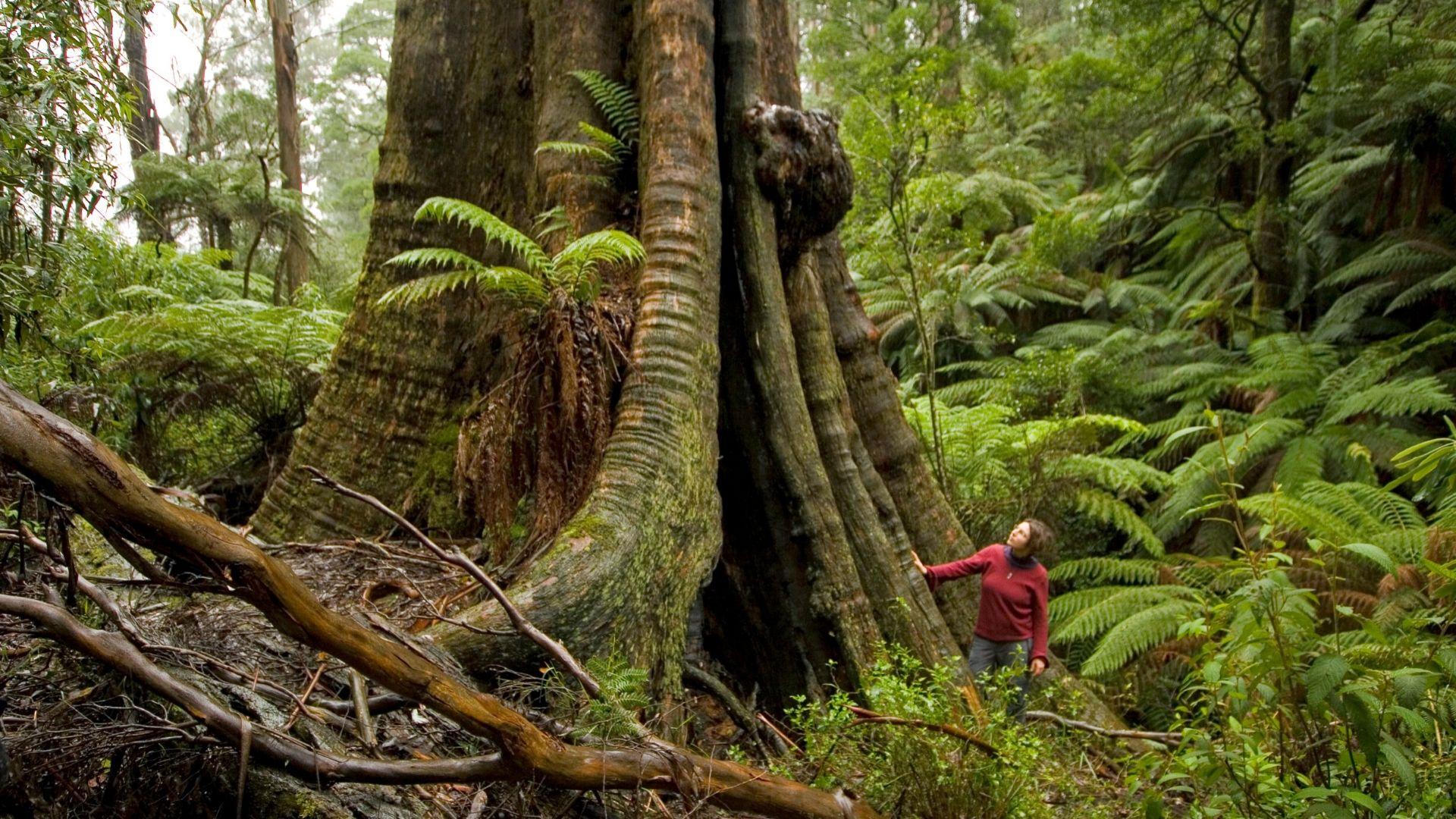
“The thing that gives me most hope is that there is a heck of a lot of green,” says Phil, describing his drives into the Mallacoota bush to see how it’s recovering. “Each time you go out, there is even more green, which is just amazing. We need to protect the forests and nature around us because it is where we live. This is our home.”
Main image top: Nick Clemann
Donate to protect our forests
Will you become a forest guardian—protecting our native forests and all the animals who call it home— by making a tax-deductible donation today?